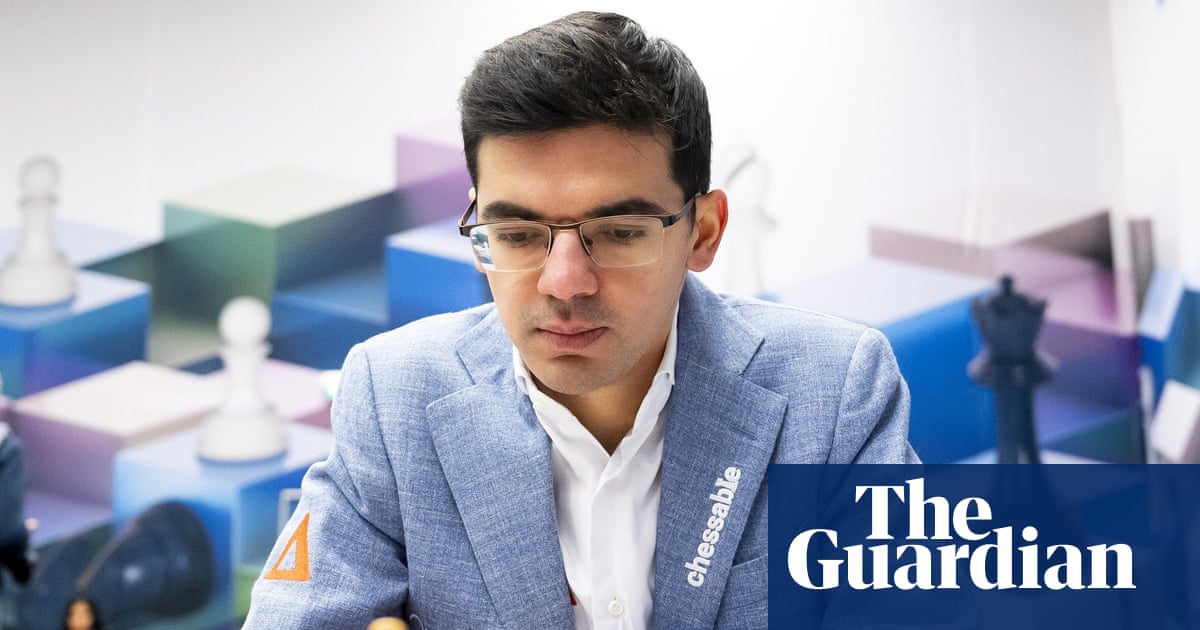America’s higher education may be under attack from the federal government – but students from the class of 2025 still have to graduate. And so commencement season, somehow, occurred, with the world’s best and brightest politicians, entertainers and athletes, plus a frog, presenting their hard-earned wisdom. From Percival Everett to Simone Biles to President Trump himself, here are 10 lessons we’ve learned from the year’s graduation speeches.
Your future can be derailed by irresponsible ejaculation
Elizabeth Banks advised her fellow University of Pennsylvania grads not to put too much stock in pie metaphors.
The biggest division in this country, the comedy actor and director said, was economic, with vast wealth concentrated in the hands of a small number of people. But they don’t have a monopoly on the future. “I can understand why you believe that life is a zero-sum game,” Banks said. “If one person takes a bigger slice, everyone else has to take a smaller slice and the total size of the pie remains the same. And that is true with actual pie. But not with life. Not with opportunity.
“You’re really only ever competing with yourself, with the limitations you’re willing to accept, with the smallness of someone else’s idea of what you’re capable of. So stop competing and start beating the pie lie.”
Unfortunately, one thing could stand in the way. “The biggest derailment to the future you want to build is irresponsible ejaculation,” Banks warned. “I know all the doctors on this stage with me agree that that is the cause of all unwanted pregnancy.” Everyone deserves to “be able to determine whether, when and with whom you become a parent”. So, she said: “Wrap it up. Keep abortion legal.”
America remains addicted to racism
Levar Burton, the actor and TV host who inspired several generations of kids to read, brought his message to Howard University, where the crowd still knew the words to the Reading Rainbow theme song.
At a dark time for America, he offered some hope. “At every level, in every era as slaves and then as the descendants of slaves, we have challenged this nation to live up to the promise of its founding proposition that all men are created equal,” he said. “In 2025, America is still addicted to its racism,” like “an alcoholic who has yet to hit rock bottom”. Still, “only in America could a descendant of slaves, for whom simply knowing how to read was once punishable by death, grow up and become a celebrated champion for literacy and the written word. This, too, is America. This is still a land of great promise and opportunity yet untold.”
Burton said he only wished the country could live up to its original promise. “To do that, she must shun the scourge of racist thinking and behaving and policymaking that holds this nation back.
“There’s gonna be another day. You hear me? There’s gonna be another day,” he told the crowd, referencing an ad-libbed line from the show Roots that lifted him to stardom. “And even though the future may look uncertain, graduates … That day has arrived. This moment is yours to shape.”
Impostor syndrome has its benefits
Speaking at Yale University, Jacinda Ardern noted the unexpected benefits of impostor syndrome and sensitivity. “Self-doubt brings with it humility,” the former prime minister of New Zealand said. “It drives you to seek information, to listen to experts who can teach you and advisers who can guide you.” And sensitivity – “the thing that moves you to tears when you see the pain of others” – can “be what drives you to action,” she added.
“In fact,” she said, “all those traits that you might have believed your whole life were weaknesses – questioning yourself, the doubt that brings humility, or sensitivity that comes with empathy – may just be what the world needs more of.”
Put your phone in the other room
At Bates College in Maine, the scholar and psychologist Angela Duckworth asked graduates and faculty to perform an excruciating experiment: handing their phones to the people next to them for a quarter of an hour.
“I want to talk about something that might seem trivial, but in fact has profound implications for your future success and happiness, something as consequential as your major or where you land your first job, and that’s where you choose to keep your phone,” Duckworth said. Her research on goals and self-control had yielded a surprising conclusion, she said: “Willpower is overrated. In study after study, psychologists like me have found that achieving what you want out of life has very little to do with forcing yourself to act in one way or another.”
Instead, she said, successful people “deliberately design their situations in ways that make wise choices easier” – a practice called “situation modification”. Teenagers are spending eight hours a day looking at screens, she said. “If you don’t like how your phone grabs your attention, directs your thoughts, triggers your desires, then push it away. On the other hand, if you do want something to take up more of your conscious awareness, art, poetry, a really good novel, keep it as close as possible.”
That goes for friends, too: “Phones can connect us to people who are far away, but they can also separate us from the people right in front of us.”
Reading is the most subversive thing you can do
Percival Everett, author of the Pulitzer Prize-winning novel James, gave a brief but stark call to action at Wesleyan University, describing this year’s graduates as perhaps “the last line of defense of and for American intellectual life”.
Fascists, he said, burn books because “they are afraid of thought”. Students, however, had learned to read – and not just books. “You have learned to read the world, people, actions, conspiracies. You have learned to think for yourselves.” Everett called reading “the most subversive thing you can do. When you read, no one knows what’s going into you, even if they are reading over your shoulder, and they are.”
His advice for graduates: “I ask nothing more from you than to do what you have been doing. Go out into the fray and keep reading.”
To survive in a new world, learn to tell human stories
At his alma mater, the University of Southern California – known for producing Hollywood luminaries – the film-maker Jon M Chu emphasized the importance of a good story, especially at a time when it can feel like the world is falling apart.
Right now, he said, familiar stories were disintegrating, and “fear, blame, and division dominate our airwaves.” But instead of despairing, he added, this was “a moment of profound opportunity. Because when the old stories fall apart, it means it’s time to write a new one.”
He continued: “Whoever tells the best story holds the power. Your ability to understand, interpret, and ultimately shape stories is critically important no matter what you want to do.” Machines may be able to assess data and “even create art, but they cannot authentically feel or intuitively connect. In whatever field you are in, your power to convey information in ways that emotionally connect will be more valuable than we even currently acknowledge.”
If Plan B doesn’t work out, try Plan C. Then Plan D, Plan E, Plan F …
Simone Biles is, of course, a top contender for the Greatest of All Time – but she told graduates at Washington University of St Louis that “being the Goat was never the goal.” Instead, “my goal was to be the greatest Simone Biles of all time.” Biles urged listeners to do the same: be the “greatest you of all time” – and in the process, embrace failure.
“When you’re reaching for things, you’re going to fall short, and yes, sometimes you’re going to fail,” she said. “When – not if, but when – this happens to you, just learn from it, and move on to Plan B. If plan B doesn’t work out, then make a Plan C, and then guess what – there’s the rest of the alphabet. The key to success is the willingness to always find a way.”
Trophy wives can be problematic
Graduates of the US Military Academy at West Point were treated to inspirational remarks by their commander-in-chief. Among other insights into the human condition, Donald Trump delved into questions of terminology, noting that the preferred term for people on the left is “progressive” rather than “liberal”, and “that’s why I call them liberal”.
He also questioned whether it was acceptable to say “trophy wife”, ultimately deciding that it was. Still, he cautioned against obtaining one. “That doesn’t work out too well, I must tell you,” he said as he regaled the newly minted officers with the life stories of the professional golfer Gary Player and real estate developer William Levitt. “A lot of trophy wives – doesn’t work out, but it made him happy for a little while at least. But he found a new wife. He sold his little boat and he got a big yacht,” Trump said of the latter. The president also pointed out that he won last year’s election.
At the University of Maryland – the alma mater of his creator, Jim Henson – Dr Kermit the Frog offered a sunny vision in challenging times. Life, he said, was about “finding your people, taking the leap, and making connections”.
“Rather than jumping over someone to get what you want, consider reaching out your hand and taking the leap side by side. Because life is better when we leap together,” the frog advised. But, he warned biology majors: “You’re not going to get me to step foot inside your lab.”
Appreciate the rule of law
The physician and author Abraham Verghese spoke at Harvard University as it defends itself from the Trump administration’s attempted crackdown on academia. Outrage over the government’s actions, he said, should lead to new appreciation – “appreciation for the rule of law and due process, which till now we took for granted”, he said, as well as “appreciation of actions that demonstrate thoughtfulness, decency, generosity, kindness, humility and service to community”.
Verghese reflected on how, during the Aids epidemic, many young people returned to their home towns to spend their last days. “Given the prevailing sentiments against gay people in small towns in the rural south, I found myself pleasantly surprised to find my patients were so well received by their families. They were cared for lovingly to the end. You see, love trumps all bigotry. Love trumps ideology.”

 3 months ago
188
3 months ago
188

















































